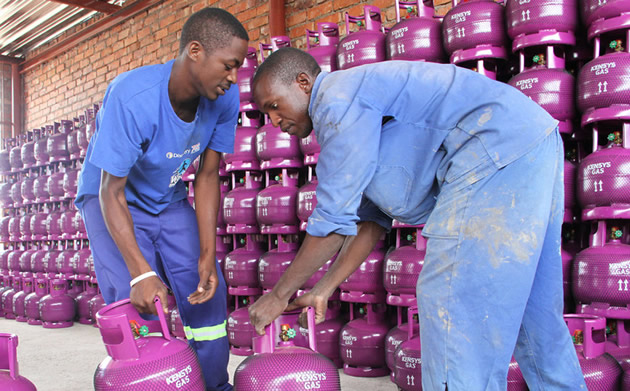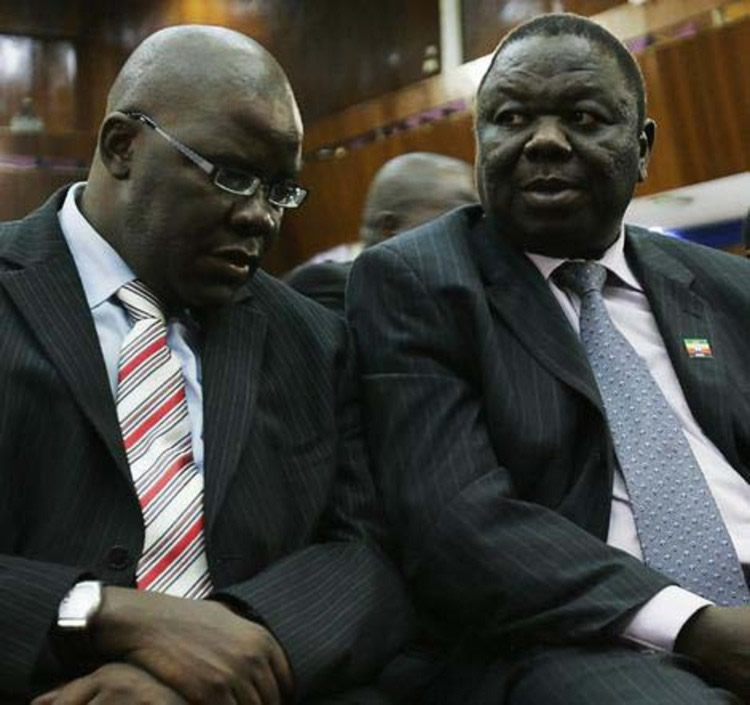Govt pushes for use of LP gas


Workers at Kensys Gas stacking domestic gas cylinders at the company’s warehouse in Harare. Kensys is one of the companies that have fully complied with prescribed safety standards as stipulated in Statutory Instrument 57 of 2014 — Petroleum (Liquid Petroleum Gas) Regulations.
Martin Kadzere Senior Business Reporter
ENERGY and Power Development Minister Dr Samuel Undenge says the Government is pushing for the use of Liquefied Petroleum Gas, especially for cooking to lessen the burden on the electricity grid, but is concerned with poor safety standards.
Dr Undenge said the Government was worried about many backyard LPG dispensing businesses which do not abide by prescribed safety standards, saying the use of LPG was growing at a slower pace mainly due to safety concerns by potential users.
Concerns have also been raised over the increasing number of sub-standard cylinders in circulation.
LPG is a cleaner form of energy mainly for heating and cooking compared to kerosene and wood fuel. The use of LPG contributes to a reduction in use of wood fuel and lessens pressures on the national electricity grid, which is already over burdened.
“The ministry wants to see households using more LPG, especially for cooking, as this will lessen the burden on electricity and also helps to reduce deforestation,” said Dr Undenge.
Following a number of gas related accidents in 2013, the Government promulgated Statutory Instruments (SI) 57 of 2014 — Petroleum (Liquid Petroleum Gas) Regulations.
ZERA, using the powers enshrined in the SI, regularly checks on the LPG businesses to see whether they are operating in terms of the law.
Indications are that the use of Liquefied Petroleum Gas by households is increasing, although at a slow pace. In Zimbabwe, studies have shown that in urban areas, LPG contributes 2 percent of the source of energy used by households. The same applies in South Africa with LPG contributing between one and 2 percent, but this relates to the whole country.
“This shows that there is a great potential for LPG use for households in Zimbabwe as firewood, normally used as substitute for electricity becomes scarce,” said Dr Undenge.
A survey by this paper has shown that only a few companies are operating within the confines of the regulations. These include Kensys Gas, BOC Gas, Zuva Petroleum and Redan. Some companies are at various stages of regularising their activities.
Kensys marketing and sales manager Mrs Angeline Mabveni-Mvududu said compliance was key to growth of the industry.
“As a company, we adopted the position that compliance with all regulatory requirements was key to the business and we are happy that our facilities and products meet all regulatory requirements set by various agencies such as the Zimbabwe Energy and Regulatory Authority and the Environmental Management Agency,” she said.
Kensys supplies LPG and has a combined handling capacity of 67 tonnes at its two plants in Harare.
Recently, the Zimbabwe Energy Regulatory Authority also approved the sale of its household gas cylinders after the firm met prescribed safety requirements.
“Our cylinders are ISO certified and ZERA has given us the green light to go on the market. For us it is important that our customers can have comfort (when using our product.”
She added that the company would take full responsibility of the maintenance of its cylinders.
Mrs Mabveni-Mvududu said this was in line with a Statutory Instrument providing the regulatory framework for the LPG sector.
It regulates the quality, storage and distribution.
Mrs Mabveni-Mvududu said Kensys has also embarked on a programme to help gas retailers to meet licensing and regulatory requirements so that they operate within the confines of the laws. She said this was in the spirit of empowering youth and women.











Comments